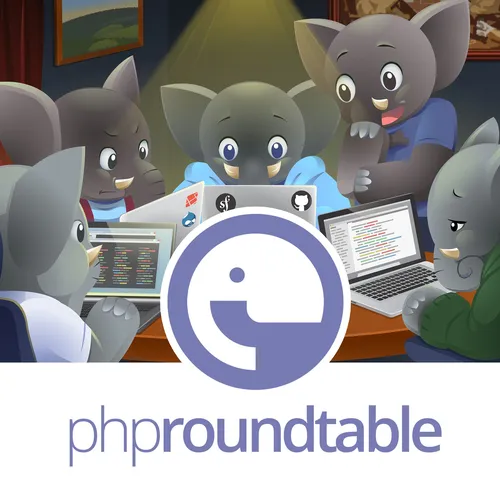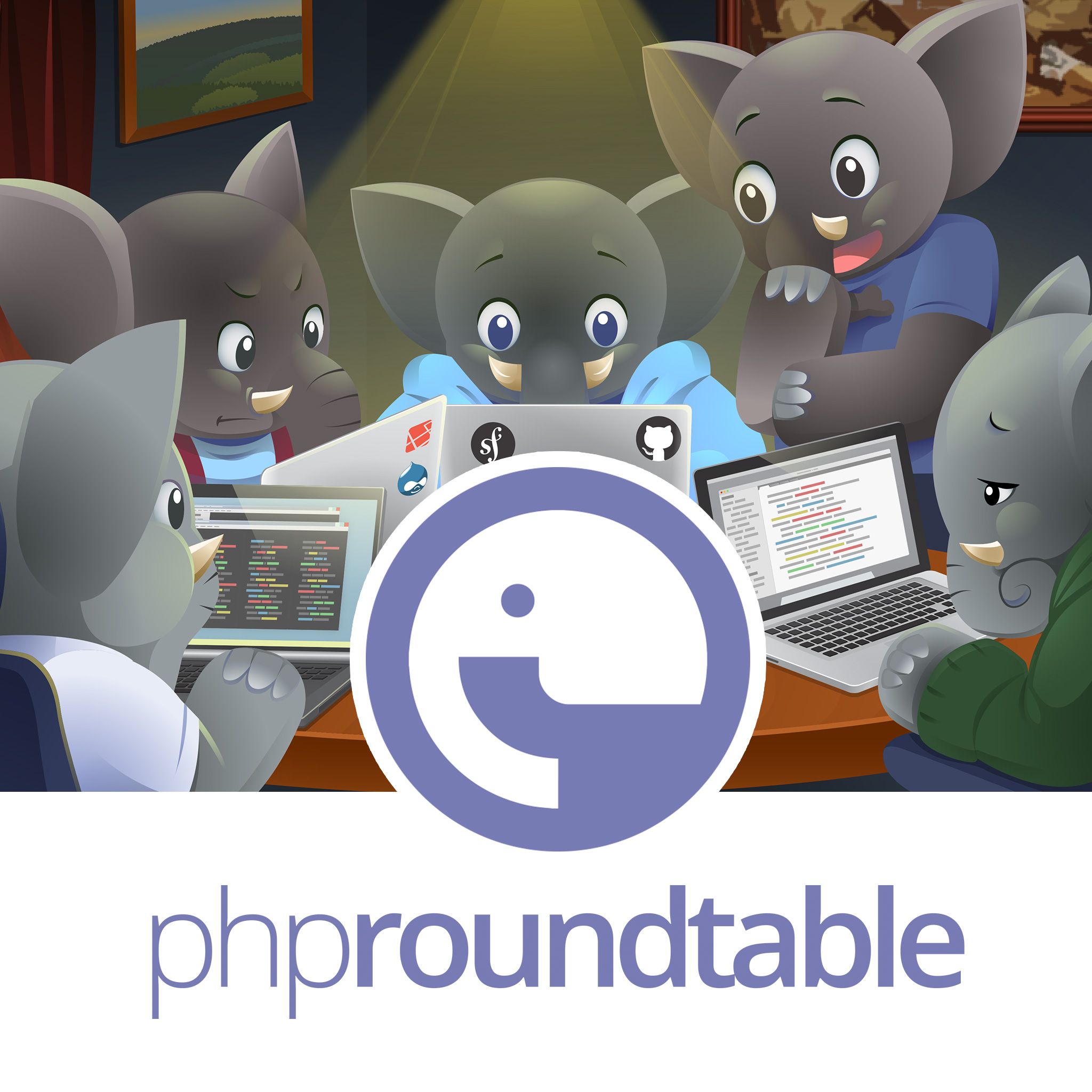
The PHP Roundtable
The PHP Roundtable is a podcast of web developers discussing PHP, JavaScript, community, open source, and anything else PHP nerds care about. It is broadcast live from Google Hangouts On-Air. For complete show notes or to watch the episodes in video format visit PHPRoundtable.com. And join the conversation live! Just subscribe to the newsletter at www.phproundtable.com and never miss a live show.
- Update frequency
- every 17 days
- Average duration
- 68 minutes
- Episodes
- 93
- Years Active
- 2014 - 2024

053: Why I'm Afraid To Admit I Use PHP
So you spend most of your time programming in PHP. You meet another programmer out in the wild. You begin explaining what you do. Do you find yourself using vague terms and actively trying to avoid t…

052: Happy Birthday PHP Roundtable!
Today the PHP Roundtable celebrates 2 years of generating nerdy discussions! We take a look behind the scenes of the PHP Roundtable podcast and chat with some nerds about what's going on the world of…

051: What happened to PHP 6?
Despite the fact that there was never an official release of PHP 6, it was going to be a real thing with a lot of great improvements to the engine and language. But why was this version of PHP never …

050: PHP For Beginners
If you're just starting with programming & PHP, this episode is for you. We discuss some helpful tips to get you started with PHP programming such as some helpful learning resources and some common p…

049: Event Sourcing in PHP
We spend much of our time as developers managing the state in our applications. There are many different approaches and philosophies attributed to reading, mutating and storing state.
The Event Sourc…

048: Docker & PHP
The demand for DevOps skills is growing more and more in modern web development. But all the hype and demand is met with myriad DevOps tools. Staying abreast of how these tools can help make our jobs…

047: All About HTTP/2
HTTP/1.1 will eventually be replaced by HTTP/2 so it's important for us PHP nerds to know all about the latest version of the HTTP protocol that's already running some of the internet's biggest websi…

046: Character Encoding and UTF-8 in PHP
If you've ever gotten a number of weird looking characters in your database or on your website like, "�" and didn't know why, then this episode is for you. Those bizarre characters called "mojibake",…

045: A php|tek 2016 Special
We record live from main stage at php|tek in St. Louis, MO. We discuss speaking at conferences and recent events in PHP-FIG.

044: Asynchronous PHP
Async? Isn't that like AJAX in Javascript or something? Most PHP developers encounter asynchronous code for the first time in Javascript, but not many are aware that PHP can do async too. We discuss …

043: A Lone Star PHP 2016 Special
We record live from Lone Star PHP 2016 in Dallas, TX. We discuss what DI Containers aren't, tradeoffs to making things easy, how to improve your dev skills, repercussions of depending on Composer, PH…

042: Staying Relevant For Web Development
The technologies that run the web are constantly changing. We discuss strategies for staying on top of the constant flux with continuous learning throughout your career, having mentors, engaging regu…

041: The PHP-FIG: Past, Present & Future
The PHP-FIG has really helped the PHP community get onboard the collaboration train with really great standards like the PSR-4 autoloading standard and the PSR-7 HTTP message interfaces.
We discuss P…

040: Graph Databases
Traditional relational databases like MySQL or Postgres are really good at providing many solutions to the problem of persisting state. But these types of database are really horrible at querying hig…

039: From Idea To Production: Part 2
We get an update on status of the project we discussed in part 1 and discuss next steps to take our dance event management app idea to production.

038: RFC Show & Tell
New features of PHP get added via the request for comments process. We chatting with a few RFC authors about what features they are proposing for the next major version of PHP.

037: An ORM Discussion
Object-relational mapping (ORM) tools are a great way to model relational databases in your codebase. We discuss the benefits that ORM tools can add to our apps, some problems with the ORM model and …

036: A Room 11 Special
We bring room 11 chat room from Stack Overflow to the Roundtable. We discuss security, PSR-6, Magic the Gathering, PHP 7 and kittens.

035: Immutable PHP
Immutability plays a huge role in functional programming and many languages support immutability directly; like the readonly keyword in C#. It is possible to create immutable objects in PHP, but the …

034: Debugging is more than var_dump()
Believe it or not, there's a lot more to debugging your PHP code than var_dump()'ing all the things. We discuss how to use debugging tools to help us comprehensively debug our codebase.